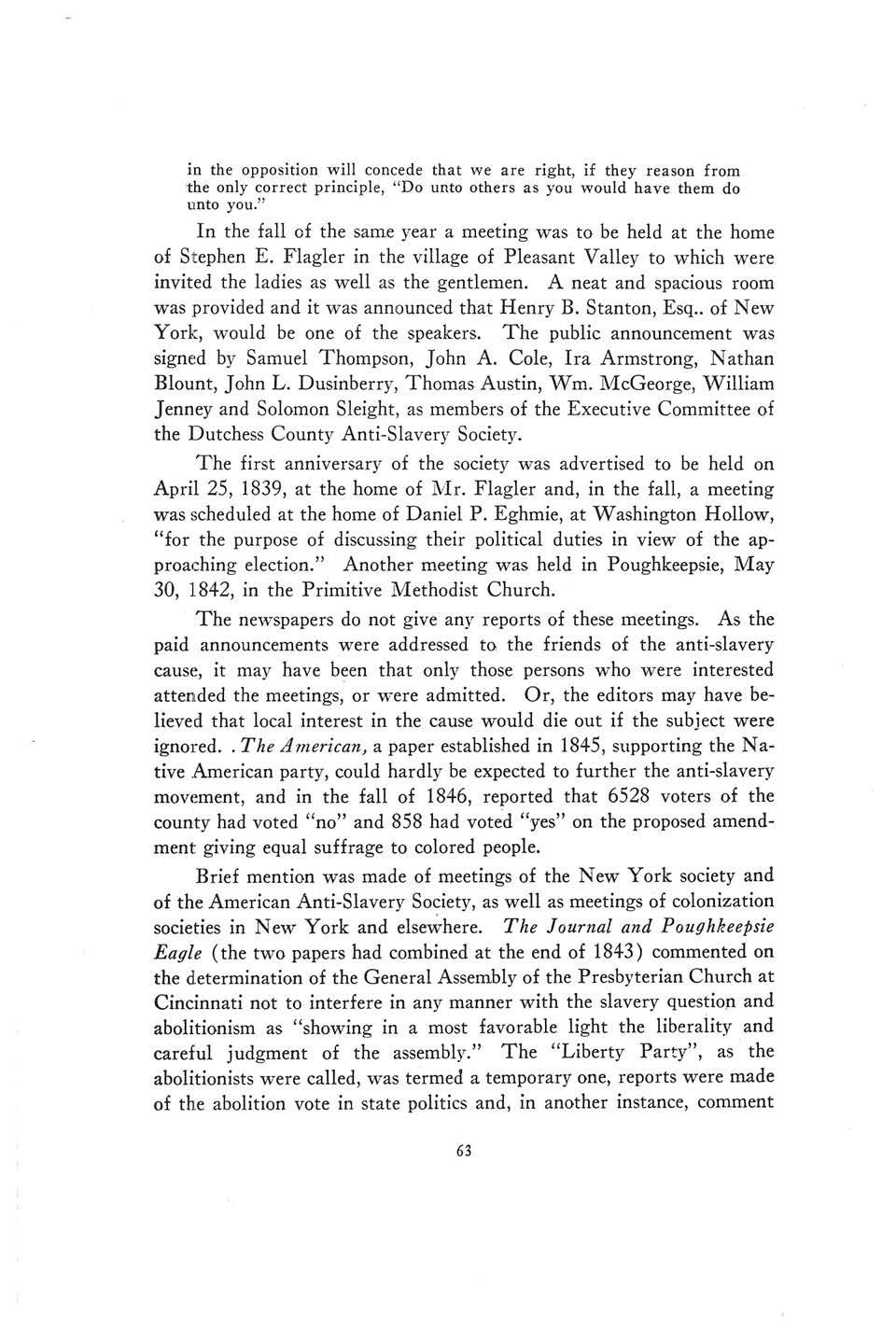bout Church had no pastor settled with them. It appears to have suf— fered greatly by a fire which destroyed their second building in 1866 and to be "nearly extinct" by 1881. Thus the first two "Presbyterian" Churches in our county have by now ceased to exist. But their spirits linger on. THE POUGHKEEPSIE CHURCH The Presbyterian Church of Poughkeepsie was the third "Presbyterian" church founded in the county. It still lives and is now the largest of the Presbyterian Churches between New York and Albany. But in its early years it almost died several times. It was organized quite probably by the Rev. Elisha Kent from the Southeast Church in. . Putnam County, who was doing some missionary work in the area of: Brinckerhoff and gathered together enough people to organize a church, there. For at the same time that the Rumbout Church in Brinckerhoff called a pastor, the Poughkeepsie church extended a "Call" to him also. So in 1748 or '49 the Rev. Chauncey Graham was ordained and installed as the pastor of the two churches. The Poughkeepsie church was quite small and lacked sufficient means to hold Mr. Graham. Therefore in 1752 he was released from the pastorate of that church but kept a "fatherly oversight" of the congregation. From then until 1764 they were without a settled pastor. During this interval a licentiate, Mr. Deliverance Smith, preached at Poughkeepsie and Pittsburgh for three: years. Then a Rev. Mr. Thompson "served a while". In 1764 the Poughkeepsie church, together with the one at Pittsburgh, applied to the newly organized Presbytery of Dutchess County for a minister and the following year the Rev. Wheeler Case was ordain, ed and installed as pastor of the "congregations at Poughkeepsie and! Charlotte" (Pittsburgh) on November 12, 1765, by the Presbytery. The service was held at Pittsburgh and the Rev. Chauncey Graham preached:' the sermon. This pastorate at Poughkeepsie lasted only five years for the church was still weak and unable to furnish adequate compensation. So, in 1770, Mr. Case was released by mutual consent, "considering their: inability", from the Poughkeepsie church. From 1770 the Poughkeepsie church was supplied with preachers: by Presbytery whenever possible, which was not too frequent, until 1790. At that time there was a sort of Union Church established with the Dutch Reformed and Presbyterian congregations uniting in calling a, 39
Dutchess County Historical Society Yearbook Vol 028 1943

Issuu converts static files into: digital portfolios, online yearbooks, online catalogs, digital photo albums and more. Sign up and create your flipbook.










